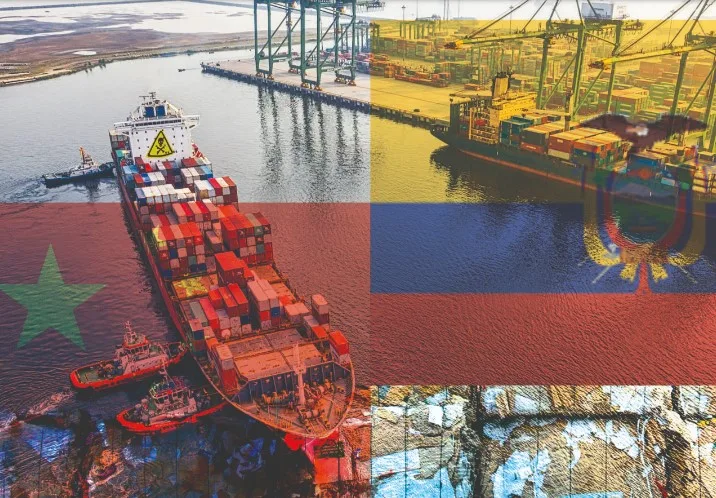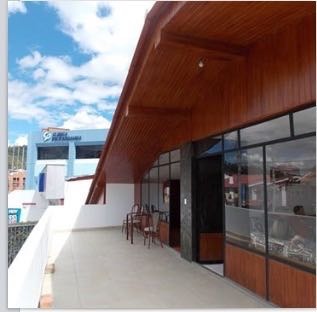Critics claim trade agreement allows China to dump toxic waste and industrial scrape in Ecuador
By Lorena Baires
On February 15, Ecuador ratified a Free Trade Agreement (FTA) with China, becoming the fourth Latin American country to establish a trade agreement with the Asian country. The agreement, however, raises concerns about the potential environmental and social impacts, as critics fear that the FTA will facilitate the entry of toxic waste labeled as “raw materials.”
 “Approving the FTA with China will bring very serious effects for Ecuador’s people and environment. The FTA contains articles that, under the pretext of a supposed recovery of “raw materials, allow the entry of different types of waste […], containing very dangerous toxins,” according to the Zero Waste Alliance of Ecuador. “In turn, it proposes an “environmental cooperation” that could include nuclear energy and the manufacture of single-use plastics, which pose very high risks and even radioactive contamination.”
“Approving the FTA with China will bring very serious effects for Ecuador’s people and environment. The FTA contains articles that, under the pretext of a supposed recovery of “raw materials, allow the entry of different types of waste […], containing very dangerous toxins,” according to the Zero Waste Alliance of Ecuador. “In turn, it proposes an “environmental cooperation” that could include nuclear energy and the manufacture of single-use plastics, which pose very high risks and even radioactive contamination.”
The government and the National Assembly, which approved the FTA, disagree and say safeguards against waste dumping were eliminated the final version of the agreement.
According to critics, the FTA allows China to send products such as scrap metal, glass, toxic liquids, batteries and electronic waste, paper, and cardboard, among others. Ecuador on the other hand, cannot send any waste, as China prohibited it.
“Unfortunately, for some decades but with much more intensity now, we see a lot of green washing [deceptive tactic to appear eco-conscious], with harmful practices under ecological and humanist discourses,” María Fernanda Solíz, general coordinator of the Zero Waste Alliance Ecuador and academic director of Health at the Simón Bolívar Andean University, told Diálogo on March. 4 “One of them is to resort to the circular economy, as a pretext for cross-border trade in waste, in which some countries send their waste [to others], labeled as raw material that can be used for recycling.”
“South American countries already have a serious sanitary and management crisis of their urban, toxic, and hazardous waste that they cannot face, which generates serious environmental liabilities, serious effects on nature, ecosystems, and communities located in the areas of direct influence. This represents very high management costs for the State and very serious environmental liabilities,” Solíz said. “Worse yet, it makes no sense that Ecuador is importing other waste to be supposedly used as raw material, if it’s burying 96 percent of its own waste.”
“Ecuador maintains its sovereign power to prohibit and control the entry of products that put the population at risk or contaminate our environment,” signed Miguel González and Alejandro Martínez, president and vice president of the Ecuadorian Business Committee, in an open letter to Ecuador’s Congress published on February 5. “A trade agreement does not restrict the right to prevent the entry of polluting goods.”
If Ecuador already receives a large amount of plastic waste and lacks the capacity to manage it, the entry of plastic waste from China would only aggravate the situation, Laura Suárez, national director of Ecuadorian organization PlastiCo Project, told Ecuadorian news site Wambra.
Added to the entry of toxic waste, other concerns include compromising environmental rights for the indigenous people of the Ecuadorian Amazon, deforestation, and concerns that the FTA will threaten the country’s food sovereignty by allowing the duty-free import of transgenic seeds and encouraging the “over-export” of food to China, which could have negative environmental and soil health consequences.
Then there is the question of Chinese companies’ operations. “The operations of its [China’s] companies abroad are not subject to supervision or public scrutiny. Therefore, since Chinese investors do not receive social, economic, or legal punishment for their abusive behavior, they have no incentive to introduce responsible patterns of action, which minimize the impact of their projects,” Latin American political platform Diálogo Politico reported in its report Keys to Understanding China. “By comparison, although Western corporations have their own history of spoils, in general they are now much more scrutinized and could not neglect good practices without paying a price for it.”
________________
Credit: Diálogo Americas





















